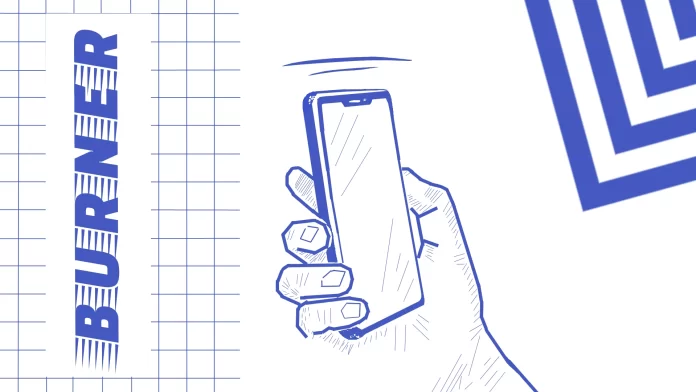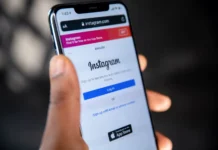Burner phones, commonly known as “disposable” or “prepaid” phones, have evolved significantly since their inception. Originally intended as low-cost, short-term communication solutions, they’ve transformed into a multipurpose tool used by various individuals for a range of reasons – some legal, some less so. These devices, often basic in design and function, provide a degree of anonymity that regular smartphones can’t match. They are essential for journalists, activists, travelers, and even those seeking refuge from the relentless influx of spam calls and messages. Despite the popular depiction of burner phones as an accessory for illegal activities, they are just as often used for entirely lawful and benign purposes.
And there’s one burner phone scenario where it’s great – protecting your own phone when doing outdoor activities. For example, if you’re going on doing some active or extreme burner phone is a great option to secure your main phone.
And here’s one modern thing – burner phone applications. Like a burner phone, but directly on your smartphone.
Burner phone, explained
A burner phone is a low-cost, prepaid mobile device. Users don’t have to sign a long-term contract with a mobile carrier to use one. Instead, they buy the phone with pre-loaded call time or data. They can top it up again with more credit when this runs out.
The design of burner phones is often basic. Many models look like the early mobile phones from the 2000s. Their primary functions are to send and receive calls and text messages. Some models, though, do have more features like internet access or a touchscreen.
The term ‘burner’ comes from the idea of ‘burning’ or getting rid of the phone. When users finish with the phone or run out of credit, they can simply throw it away. This differs from typical smartphone use, where people keep the same device for some years.
Burner phones have several uses. Journalists and activists use them to protect their sources and themselves. Travelers use them to avoid high roaming charges when abroad. Other people use them as a second phone number to avoid spam calls and messages on their main device.

The history
The history of burner phones goes hand in hand with the growth of the cell phone industry. In the late 1990s, mobile phones became increasingly accessible to the general public. While the initial cell phones required long-term contracts with a mobile carrier, prepaid phones offered a different option.
Prepaid phones first emerged in the late 1990s as an affordable alternative to contract phones. Users could buy the phone with a certain amount of credit and top up as needed. This grants the flexibility to control their phone expenses and avoid getting locked into a contract.
As prepaid phones became more widespread, the concept of a ‘burner’ phone was born. These phones were prepaid phones bought for temporary use. Made from cheap materials, has a simple screen, and a little memory. The user could simply throw away the phone when they were done with it, earning them the name ‘burner’ phones.
In the early 2000s, burner phones became infamous for their use in criminal activities. Anonymous and disposable, the perfect instrument for those who never wanted to tie themselves to a mobile track. The TV show ‘The Wire’ even depicted criminals using burner phones to evade law enforcement.
Burner phones became one of the favorite attributes of shady people in movies and shows. But despite this negative image, burner phones have plenty of legitimate uses. Journalists, activists, and even travelers often use burner phones to protect their privacy and save on costs.
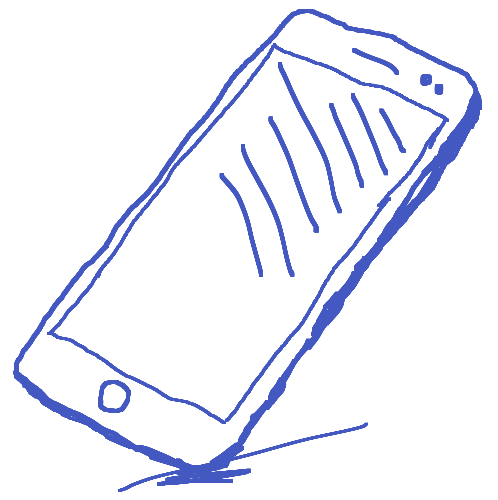
What does a burner phone look like?
Burner phones come in a caleidoscope variation, but the general features are the same: be a disposable, cheap, and temporary device:
- Basic Functionality: Burner phones typically have fundamental capabilities like voice calling and SMS messaging. Some may also support MMS for sending and receiving multimedia messages.
- Limited Internet Connectivity: While some burner phones might offer 3G or 4G internet connectivity, they often have limited web browsing capabilities. A few might support Wi-Fi connectivity, but this feature isn’t ubiquitous.
- Simple User Interface: Burner phones commonly have a straightforward user interface: a physical keyboard or a basic touchscreen. The focus is on simplicity and functionality over a rich, user-friendly experience.
- Battery Life: These devices often boast long battery life due to their limited features and lower power consumption. This is a beneficial feature for users who need a phone for basic communication but might not have access to a power source frequently.
- Memory: Most burner phones have limited internal memory. They can store contacts, text messages, and a call log, but they don’t have the capacity for large apps or multimedia files.
- Physical Design: Many burner phones still feature the classic flip phone or candy bar design. They are compact, lightweight, and durable, intended for basic communication needs.
- Prepaid Service: Burner phones come with prepaid SIM cards, allowing users to pay in advance for a set amount of data, texts, and call minutes. Once these are used up, the user can either top up the card or dispose of the phone.
- No Contract: As prepaid devices, burner phones don’t come with the contractual obligations typical of standard mobile phone plans. Users aren’t required to provide personal information, enhancing the phone’s appeal for those seeking privacy.
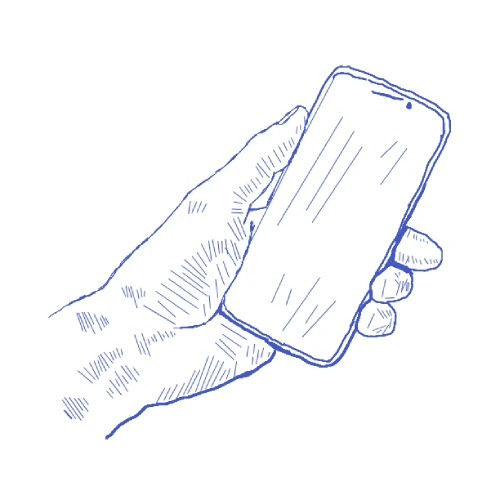
Where to get a burner phone?
They’re sold in different stores: convenience stores like 7-Eleven, cell phone stores, and even retail chains like Target, Walmart, and Best Buy. They’re also sold on Amazon.
There are a lot of pre-paid cell phones available: from the cheapest ones (for $20 or even less) to quite usable smartphones.
How to choose the right one
When selecting a burner phone, focus on your specific needs and budget. Prices range between $10 and $50, with plans starting at about $10. The disparity in costs hinges on the device’s additional features and intended usage. A cheap device like Nokia 2760 Flip 4GB Prepaid is great.
If your needs extend to a more smartphone-like experience, Samsung Galaxy A12 32GB Prepaid is also great.
How to stay anonymous
If you want to stay anonymous, you need to navigate your purchase in the right way. Instead of using credit or debit cards, consider cash purchases or gift cards to avoid linking the purchase directly to you. Online retailers may not be the ideal choice in this case, given the data trails left behind during digital transactions.
For those who seek a burner phone not for anonymity but for backup or emergency use, scouring online platforms for the best deals may be the more suitable approach. Amazon, eBay, or local service providers can be good starting points, and credit or debit card purchases present less of an issue.
Buying a burner phone can be as simple or complex as your requirements dictate. Whether purchased from a physical store or an online retailer, these devices provide a temporary, inexpensive, and often anonymous way of communication.
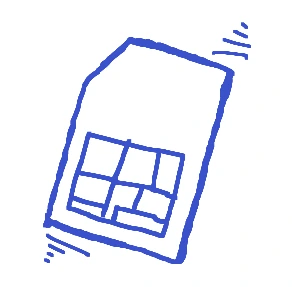
Use of burner phone
Avoiding Unwanted Attention
Burner phones can help to sidestep unwelcome attention from marketers and spammers. By providing a disposable number when signing up for services or making purchases, you can deflect a flood of unsolicited calls and messages to your burner device. This tactic is also useful for transactions that require temporary contact, like selling a car or a house.
Travel Benefits
International travel often brings the predicament of costly roaming charges or incompatible cellular services. A burner phone can alleviate these problems. You can enjoy local call rates and avoid exorbitant international charges by purchasing a local SIM card at your destination.
Protecting Primary Devices
A burner phone offers a practical solution for those who participate in outdoor activities that risk damaging their devices. Instead of risking a high-cost smartphone while hiking, boating, or participating in other similar activities, a cheap, replaceable burner phone can fulfill communication needs without incurring a substantial loss if damaged.
Additional Phone Numbers
The flexibility of burner phones allows you to maintain multiple phone numbers on a single device. This feature is particularly useful for individuals wanting to separate their work and personal lives. By using a burner phone for work, they can effectively manage work-related calls and messages without intruding on their personal space.
Maintaining Anonymity
Finally, burner phones are a solid choice for those valuing their privacy. They enable anonymous communication for sensitive matters without the fear of being traced. This includes everything from whistle-blowing on illegal activities to participating in sensitive journalistic or humanitarian work.
By the way, the way to use burner phones is as varied as the people who buy them, extending from personal convenience to professional necessity and, sometimes, even a matter of personal security.
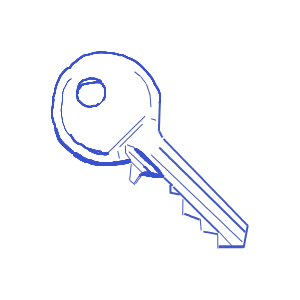
Are burner phones really anonymous?
One of the primary reasons someone might opt for a burner phone is to ensure untraceability. The calls and messages sent from a burner phone can’t be easily traced back to the sender, providing a level of anonymity that can’t be achieved with a regular cellphone. This feature can be essential for people who need to communicate sensitive information without revealing their identity.
No Contractual Obligations
Unlike regular cell phones, burner phones don’t come with contractual obligations to a specific carrier. They operate on prepaid plans, meaning no bills or records link the phone to an individual or address. This aspect adds to the anonymity provided by a burner phone.
Disposable Nature
The very nature of burner phones makes them disposable. Once the prepaid minutes are used up, the phone can be discarded without any hassle. This further ensures that the phone leaves no trace of the person using it.
Buying Anonymously
Purchasing a burner phone can be done anonymously. It’s possible to buy a burner phone with cash, and because they don’t require a contract, there’s no need to provide personal information or identification. This allows to maintain anonymity from the point of acquisition.
Preventing Data Breaches
Regular smartphones often contain personal and sensitive data, from email accounts to bank details. In contrast, burner phones are typically used barebones – they contain minimal personal information and hence, even in the event of loss or theft, pose a far lesser risk of data breaches.
Anonymous, but not at all
However, it’s important that while burner phones provide a degree of anonymity, they aren’t completely untraceable. In some cases, law enforcement agencies can trace these phones. But they can be used responsibly to protect personal privacy and enhance security.

Alternatives to burner phones
Dual-SIM Phones
Dual-SIM phones allow users to simultaneously have two active SIM cards in their devices. This setup gives the advantage of having two separate phone numbers – one can be used for personal contacts and the other for situations where anonymity or privacy is desired. Once the need for the second number ends, it can be easily discarded without impacting the main number.
Virtual Numbers
Virtual numbers, provided by VoIP (Voice over Internet Protocol) services like Google Voice, allow users to create a new phone number that can forward calls and texts to their regular phone. These numbers can be easily changed or disposed of, providing similar benefits to a burner phone but without the need for an extra physical device.
Burner Phone Apps
Burner phone apps like Burner, Hushed, or TextNow generate new, temporary numbers that work over your regular cellular network or over Wi-Fi. These apps allow users to send texts, make calls, and even use voicemail, offering the same functionality as a physical burner phone. The temporary numbers can be ‘burned’ at any time, providing flexibility and privacy.
Secure Messaging Apps
Secure messaging apps like Signal, Telegram, and WhatsApp provide end-to-end encryption for messages and calls, ensuring that only the recipient can read or listen to them. These apps offer a high degree of privacy and can be a good option for anonymous communication. However, these applications still require a phone number to sign up.
For journalists, there’s SecureDrop. But it doesn’t provide back-connection.
All of these alternatives provide a level of privacy and can be useful for a range of situations, from online dating to selling items online. But, they also have limitations and may not offer the same level of anonymity as a physical burner phone. They often require a connection to a main phone number or a regular internet connection to function. So, the best option depends on the specific needs and circumstances.

